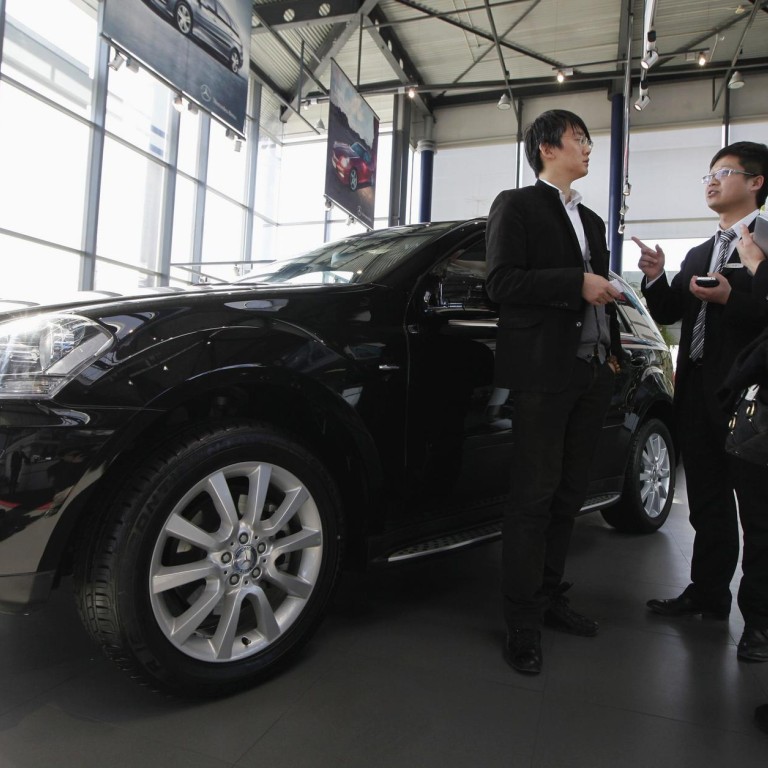
China's coming 'baby boom' fuels need for more spacious cars
Relaxation of the mainland's one-child policy has set the stage for a shift to models with more seats to accommodate larger families
After buying a Volkswagen Magotan in 2011, two months before the birth of his first child, Zhang Lin is now considering a more spacious car because he wants a second child following the relaxation of the mainland's one-child policy.
"The car I am using would become very crowded if I had two children," Zhang, an only child, said. "I will need to buy an SUV."
Riding the wave of consumption created by the change in the one-child policy, demand for more spacious vehicles is set to take off, especially as grandparents often play a key role in looking after young children, adding to the number of seats needed.
Zhang's mother-in-law helps look after his son, and his parents sometimes lend a hand as well. Zhang said he would opt for a Volkswagen Tiguan, an SUV that costs about 350,000 yuan (HK$450,000).
He said buying an SUV in addition to the car would be perfect, but he might need to replace the car, because Beijing has implemented a licence plate lottery system to limit car purchases.
"If I could win a licence plate through the lottery, I could afford to buy another car, but it doesn't seem easy," he said.
China is expected to experience a mini baby boom, with experts estimating that 15 million to 20 million people will be eligible to have a second child after the Communist Party's decision to relax the one-child policy in November by allowing couples to have a second child if at least one of the spouses is an only child.
Jennifer Li, director of global consulting company AlixPartners, said sales of multipurpose vehicles (MPVs) would benefit because they offered more seats for bigger families. "Minivan models that provide seven seats will fit their needs," she said.
Minivans made by General Motors, Toyota and Kia were popular among mainland consumers, Li said.
"Although those automakers will likely benefit, the real effect on sales will only be seen two to three years later, as families will need time for planning," she said.
Li said carmakers would need to be more focused on the needs of big families when marketing their products from now on.
Mainlanders will need a more diverse offering of vehicles following the relaxation of the one-child policy, with some SUVs likely to fit the needs of bigger families, a spokesman for Infiniti China, the luxury division of Japanese carmaker Nissan, said.
Its seven-seater Infiniti QX60 SUV, which is as spacious as an MPV, would be one of the options, he said. A hybrid version of the QX60 and a new QX80 model with split-folding seats that could be arranged for eight passengers would be launched this year.
Infiniti's retail sales on the mainland increased by 54 per cent to 17,108 units last year, and the company was confident it could maintain the high growth rate this year. "Our mid-term objective is to achieve annual sales of 100,000 vehicles by 2018," the spokesman said.
Gordon Xie, a partner with Deloitte China who advises the car industry, said overall car sales might not see significant growth because of the relaxation of the one-child policy, but the structure of sales might change.
"The proportion of larger, more spacious cars will increase in the long term," he said, expecting stronger demand for vehicles costing over 200,000 yuan.
Of the 17.9 million passenger vehicles sold last year, SUVs accounted for 2.99 million units, up 49.4 per cent year on year, data from the China Association of Automobile Manufacturers showed. MPV sales increased 60 per cent year on year to 1.3 million units.
